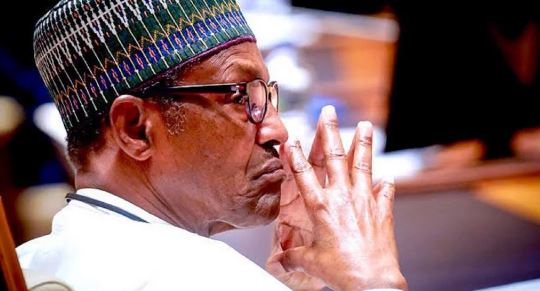Electoral bill: Why Buhari should over-rule Malami
Once more, subdued concern has been spreading around informed political circles in the country over the future of the Electoral Amendment Bill 2021, as the Attorney General of the Federation and Minister of Justice Abubakar Malami has placed the future of the legislation in the terrain of conjecture. Against the backdrop of the National Assembly […]

President Muhammadu Buhari
Once more, subdued concern has been spreading around informed political circles in the country over the future of the Electoral Amendment Bill 2021, as the Attorney General of the Federation and Minister of Justice Abubakar Malami has placed the future of the legislation in the terrain of conjecture. Against the backdrop of the National Assembly backing down for the sixth time in the last six years, over this duly passed legislation, just to accommodate the series of misgivings by the Presidency, Nigerians may be seeing the sixth instance of prevarication on assent to the Bill by the President, ostensibly on the prompting of Malami. Speaking last week on Channels Television programme ‘Politics Today’, Malami told a worried nation that assent to the Electoral Bill which is now before the President, will only happen if he Malami is personally satisfied that it serves national interest and fulfils the requirements of law.
Unfortunately or otherwise, his pronouncement provided little cheer from Nigerians when viewed against the backdrop of how far he has handled the matter of the Bill. It is easy to recall that this same Bill has been subjected to a seemingly endless odyssey in the precincts of the National Assembly since 2015, in the course of which it had been presented to the President for a record six times for assent. And for the same number of times the President had declined assent, ostesibly due to the advice of Malami. The latest instance was in December 2021 when against high public expectations that the matter would be put to rest, Malami struck again to truncate the trajectory of the legislation towards the status of an Act, ostensibly through his advice to the President.
- 24 to win scholarship as forum urges Nigeria to up games on Mathematics deficiency
- I want to succeed Buhari, but don’t want to step on his toes – Tinubu
Seen in perspective, the seeming ding-dong course of the Bill evokes a deluge of questions over the propriety of the entire drama surrounding it both in the National Assembly and the Presidency — the two locations between which it had been oscillating like a ping pong ball of sorts. What is really happening — one may ask, that these two theatres of governance, find it difficult to pass this important legislation that occupies a strategic position as a determinant of the country’s electoral future.
Against the importance of the legislation for the country’s politics, it is not out of place that the Bill had attracted and still attracts heightened interest given the stakes involved. Leadership politics and tussle anywhere has never been a trifle, hence the Nigerian situation cannot be an exception. However with respect to this Bill the various twists and turns associated with its trajectory — especially the latest take by Malami conjures fears over whether it will be ready for use in respect of the 2023 polls, which is barely one year away. For ‘doubting Thomases’ who may consider the foregoing prognosis as outlandish, they only need to refer to the build up to year 2019 general polls when an earlier version of this same Electoral Amendment Bill was passed and was denied assent by the President on the grounds that it came too close to the polls and therefore too late, as granting it assent would compromise then imminent polls. Comparing the situation in 2019, and the present merry-go-round trips of the Bill, hardly is the difference between them very clear. It was in the same manner that assent was serially declined until time ran out as the President then argued.
Interestingly, several interests across the country had been calling for Malami to be restrained with respect to the obvious rigmarole of the Bill, especially with his unmistakeable dalliance with its run. The thrust of the ‘stop Malami’ lobby is driven by the fear that once more Nigerians are allowing him a wider freedom of discretion than the office he occupies actually provides statutorily. And the blame actually goes to the National Assembly for conceding serially to the dictates of the Presidency which had unpretentionally been acting the script of Malami.
The question now is whose wisdom and definition of national interest is more credible and valid between the National Assembly and Malami for use, given that for each instance of decline of assent by the President to the electoral Bill, whatever objections proffered by the latter are accepted by the legislature hook, line and sinker? This question remains appropriate as the return of a Bill for as many as six times across the lives of the Eighth and Ninth National Assemblies is simply a cycle too long. This is just as disturbing as Malami’s recent comment that if the fresh amendment to the Bill contain ‘selfish’ content it will not be signed by the President. Who is the National Assembly actually conceding to – Buhari or Malami?
The lesson from the Electoral Amendment Bill saga provides further insight into the obvious tinge of subterfuge in many instances of President’s responses to national issues, whereby while Nigerians may be hearing the ‘voice of Esau’, it is ‘Jacob’s hand’ that rocks the crucible. Hence, with respect to the fortunes of the Electoral Amendment Bill 2021, it is high time Buhari overrules Malami. All he has to lose is further odium on his tenure, which is what he needs as a plus to his image in the reckoning of posterity.
